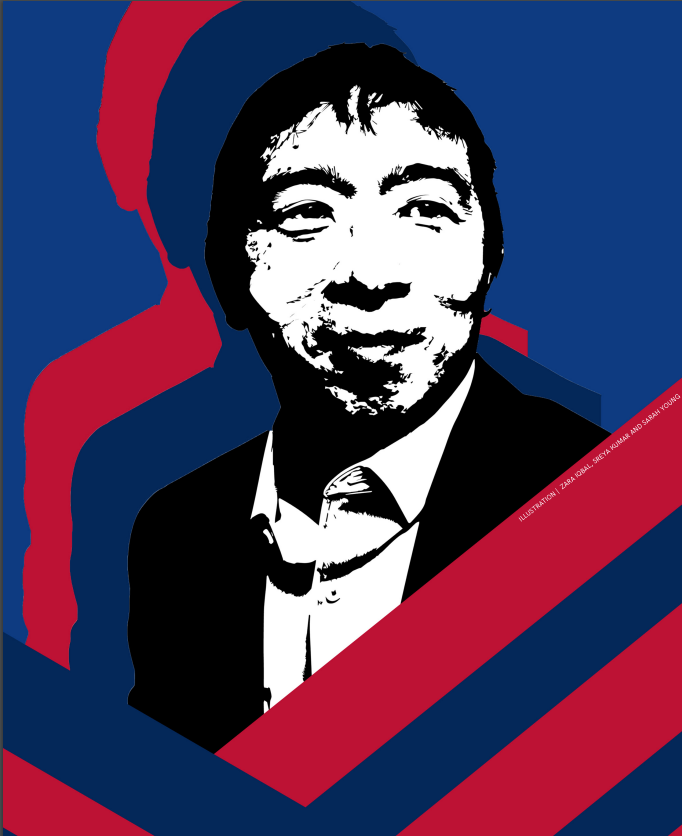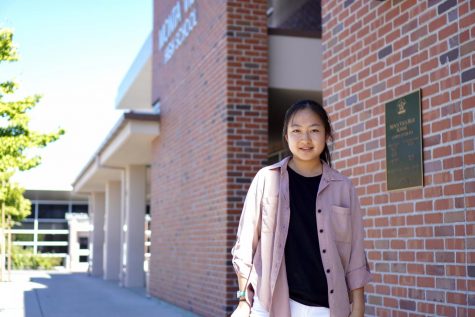The race to presidency
People should avoid biased judgement of political candidates based on their appearances
September 27, 2019
While Andrew Yang isn’t the first and only Asian American to run for president, something about him is raising eyebrows among conservatives and liberals alike: his policy for a universal basic income. The 2020 democratic debates mark a rather historic moment, with three Asian American candidates — Yang, Tulsi Gabbard and Kamala Harris.
The Asian American voice is becoming more prominent in present day America, with more individuals running for office at the city, state and national level. Pew Research Center charts have proved the trend; before 2014, less than 3% of the voter population consisted of Asian American individuals, but these numbers rose to 3.5% in the 2018 midterm elections. There has also been a rise in Asian American and Pacific Islanders running for Congress, with 32 candidates in 2018, compared to just 10 in 2010.
As more Asian Americans are willing to get involved with politics, it seems like Yang is using the numbers to his advantage. A former technology entrepreneur, Yang is the CEO of an 11 million dollar test prep company, and true to his brand, he strives to face Donald Trump as the “Asian man who likes math.”
In addition, he spreads his influence on social media platforms primarily used by Asian consumers like WeChat. Yang proudly embraces his ethnicity and heritage to create a sense of familiarity with his audience — and it works. A significant amount of funding comes from Asian American donors: more than $119,000.
He has since qualified for the September Democratic Debates and moves forward with his slogan “Make America Think Harder.” In ways, Yang has inspired an entire population to vote — as miraculous as this sounds, it presents a downside: many will vote for Yang simply because he is Asian American.
Throughout history, people have demonstrated a tendency to vote for candidates simply due to their heritage rather than policies. The Pew Research Center confirms that during the time period of former President Barack Obama’s presidency, African American votes shot up. In 2012, the numbers peaked at 66.6% of the community voting in the election.
People should educate themselves about the ideals and values of candidates before voting for someone who may not even align with their morals. Additionally, it’s still important that candidates from minority groups are being supported as they represent America’s diversity.
Fortunately, women, LGBTQ+ and ethnically diverse candidates are becoming more visible in politics. Mayor Pete Buttigieg joined the presidential race as openly homosexual and Elizabeth Warren rises as a strong female opponent. They all deserve a voice in this country to stand up for their community and be heard by all citizens, as in the past their appearance and beliefs have stunted them from entering the political realm.
After decades of fighting through anti-immigration laws and being forced to accept certain roles in society, the 2020 presidential elections have proven minorities other wise, and many Americans are beginning to pay attention to what they have to say and stand for. This election marks one of the best times in history, when minorities have the chance to become the most influential figure in America. Their voices help create a better representation of the entire nation.
This is where democracy is at its best.





























